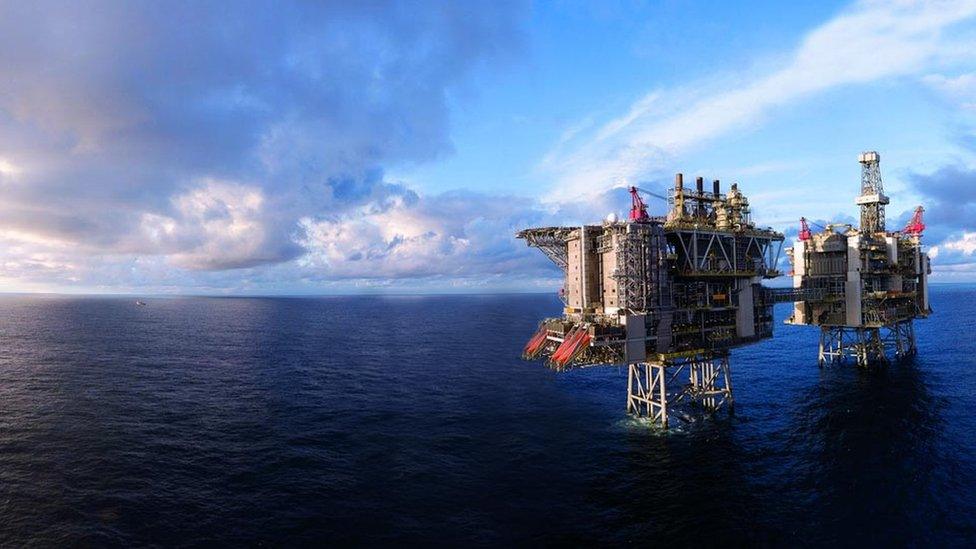UK Europe's 'dirty man' after oil field approval, says minister
- Published
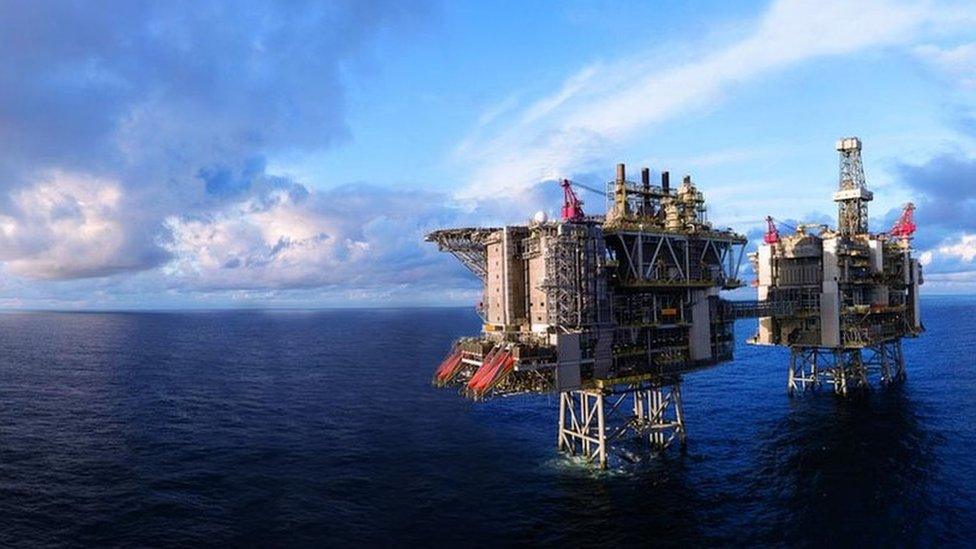
Equinor hopes to develop Rosebank close to BP's Clair Ridge development (pictured), which has been in operation since 2018
The decision to give the go-ahead to the controversial Rosebank oilfield off Shetland makes the UK the "dirty man of Europe", a Welsh minister has said.
Regulators approved the UK's largest untapped oil field on Wednesday, after environmental reassurances were given.
UK government said the move would raise billions of pounds and "make us more secure against tyrants like Putin".
Wales' Climate Change Minister Julie James said it mortgaged "the souls of our children and grandchildren".
It is estimated that Rosebank, 80 miles west of Shetland, could produce 300 million barrels of oil.
Development and production approval has been given to owners Equinor and Ithaca Energy, despite widespread criticism due to its impact on climate change.
The firms say it will create about 16,000 jobs during the height of construction, support 450 UK-based jobs during its lifetime and provide "a significant amount of tax revenues for the treasury".
Supporters of the project say it is also vital for energy security as it will reduce reliance on imports.
Scotland's First Minister Humza Yousaf said he was "disappointed" by the decision.
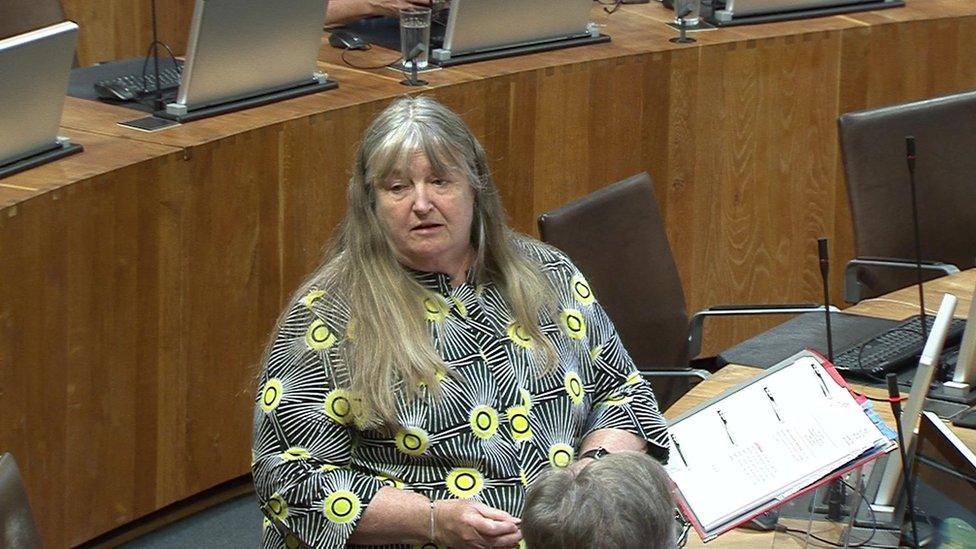
Julie James: "I was really, really depressed at hearing that announcement"
Speaking in the Senedd, Ms James called the decision was "very alarming".
"I was really, really depressed at hearing that announcement, because it just puts the UK, once again, back in the role of someone who's the dirty man of Europe, not a world leader at all, and just absolutely determined to exploit the world's natural resources and, frankly, mortgage the souls of our children and grandchildren," she said.
She was responding to Plaid Cymru Senedd member Delyth Jewell, who said Wales must "now move more quickly to reach net zero before 2050", meaning the country would no longer add to the total amount of greenhouse gases in the atmosphere.
Ms James said a "taskforce", part of the Labour-Plaid Cymru co-operation agreement on a series of key policies in Cardiff Bay, was "looking into whether we can accelerate net zero, and I'm very much looking forward to their report".
Rosebank production is expected to begin in 2026-27, but a senior executive with Norweigan state oil company Equinor has admitted the new field will not be electrified then.
Electrification of the extraction process is a key industry pledge for reducing production emissions.
Oil and gas regulator North Sea Transition Authority said approval had been awarded "in accordance with our published guidance and taking net zero considerations into account throughout the project's lifecycle".
Last month 50 MPs and peers from all major parties raised concerns Rosebank could produce 200 million tonnes of carbon dioxide and urged then Energy Secretary Grant Shapps to block it.
- Published27 September 2023
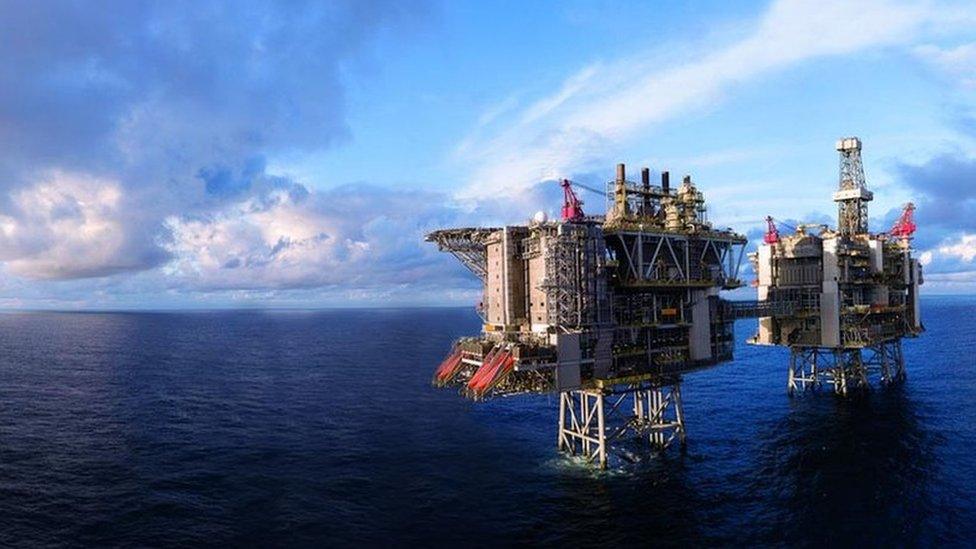
- Published21 June 2023
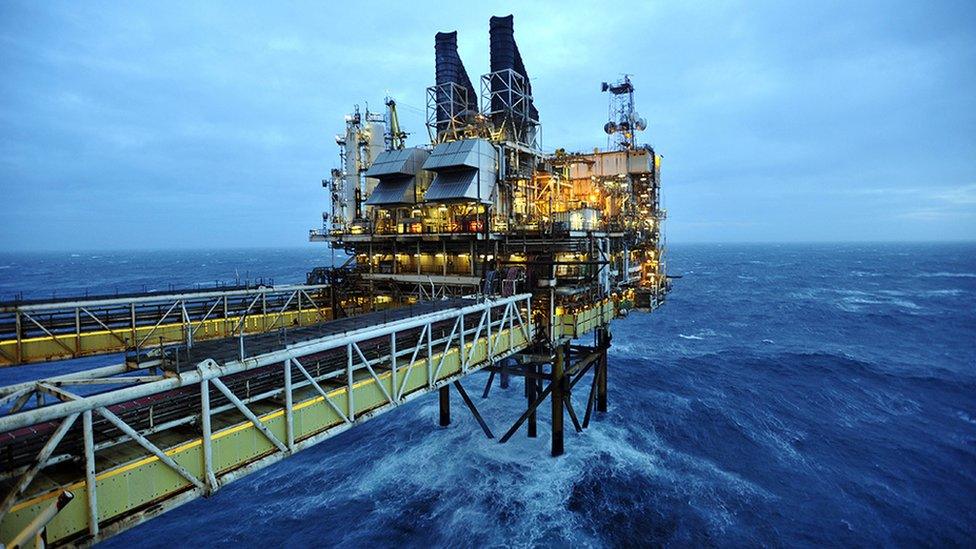
- Published29 July 2023
